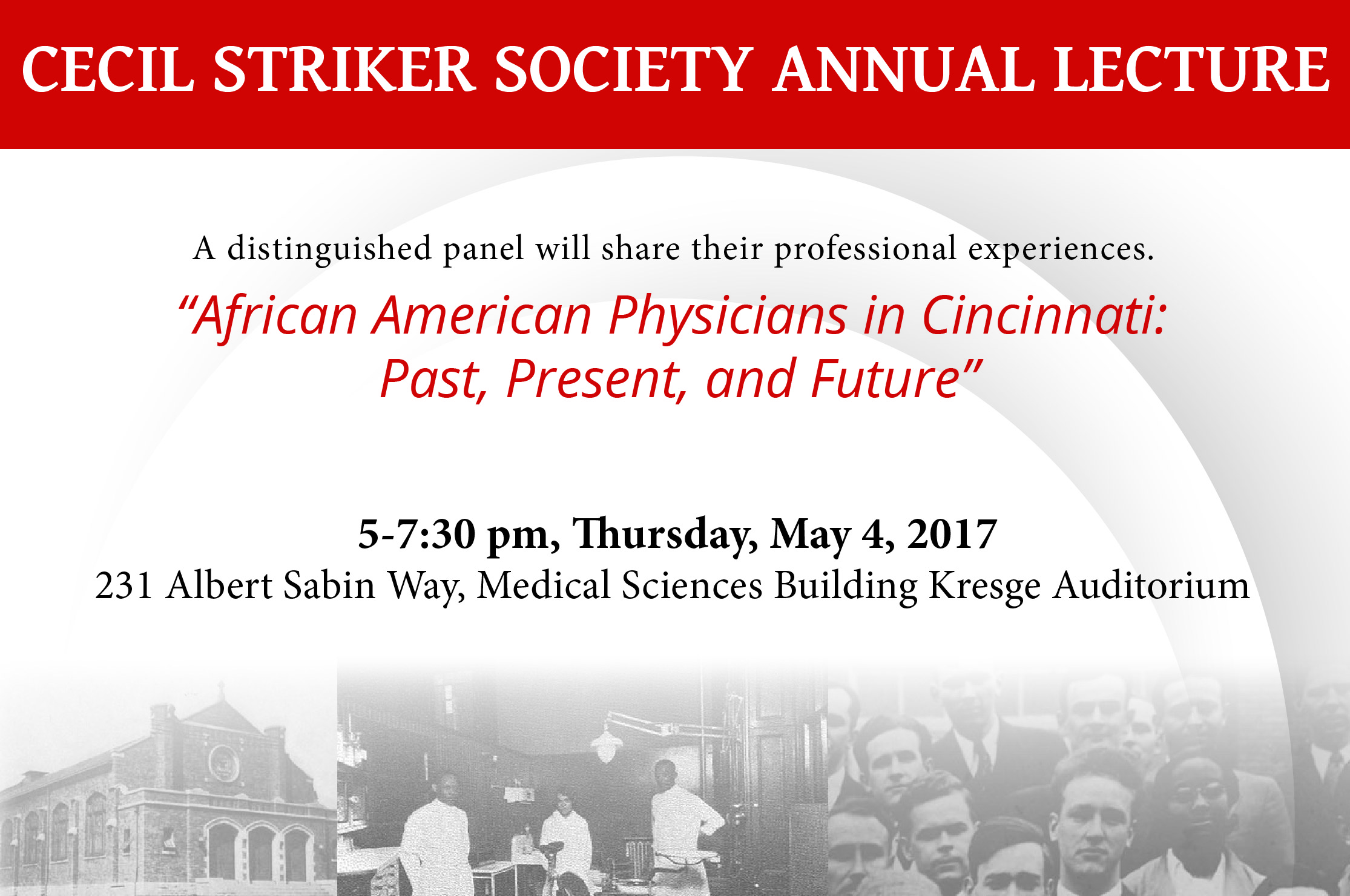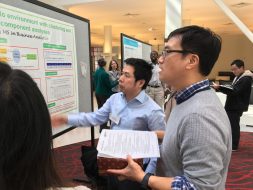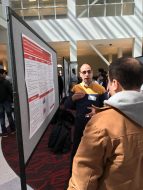Each year, The Office of the Provost and the Office of Research collaborate to present the Dean’s Award for Faculty Excellence, which recognizes faculty members who represent excellence in all its forms. Each Dean nominates faculty from their respective units whom they deem worthy of this honor. This year, Dean Xuemao Wang recognized the work of Elna Saxton, head of Content Services in the Walter C. Langsam Library, and Tiffany Grant, interim assistant director for research and informatics at the Donald C. Harrison Health Sciences Library. Below is more about their awards. Congratulations, Elna and Tiffany!
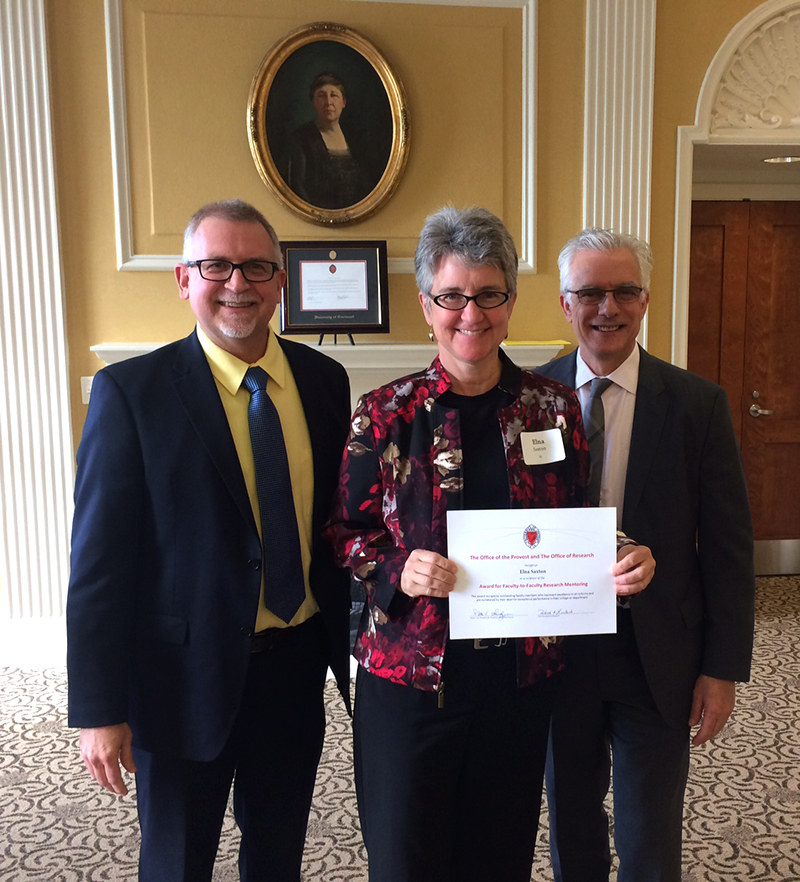
(l to r) Dr. Patrick A. Limbach, VP for Research; Elna Saxton; and Peter E. Landgren, Interim Senior Vice President for Academic Affairs and Provost
Excellence Award for Faculty-to-Faculty Research Mentoring 2016-2017 – Elna Saxton
Elna has a long history of mentoring faculty members who work as part of her team. She encourages them to develop their positions and skill sets and provides encouragement and other support to them. Elna’s support of faculty in her unit is unconditional, even if that means they need to leave her team to move on to other career objectives within University of Cincinnati Libraries or elsewhere.
“Receiving this award is an honor and reflects on the many successful colleagues that I’ve had the good fortune to work with. It is very rewarding to work with new faculty and engage with their professional and career development,” said Elna.
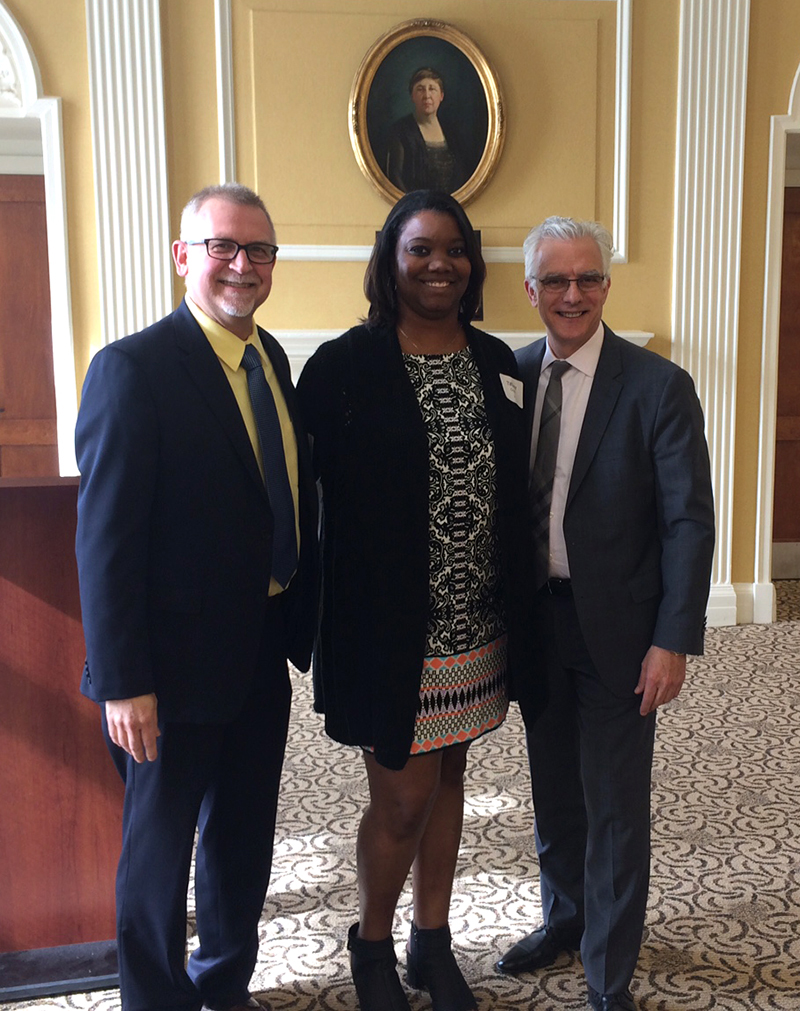
(l to r) Dr. Patrick A. Limbach, VP for Research; Tiffany Grant; and Peter E. Landgren, Interim Senior Vice President for Academic Affairs and Provost
Award for Faculty Excellence 2016-2017 – Tiffany Grant
Tiffany has served as co-PI on the NIH Informationist Supplement grant “The Relationship Between Vortices, Acoustics, and Vibration in Vocal Fold Asymmetries”, working collaboratively with Dr. Khosla and his team. Dr. Grant also coordinated the writing of and now implementation of the Faculty Development Grant UC Libraries received this year for the pilot of Electronic Lab Notebooks at the University of Cincinnati. Last fall, Dr. Grant also invited the National Center for Biotechnology Information (NCBI) to come to the University for a series of workshops for UC faculty and staff.
“I am profoundly grateful to have been considered for such an honor. I truly enjoy the work that I do and those that I work with. My work in the Libraries has been tremendously rewarding, and I’m thankful for the continued support of my Health Sciences Library and University of Cincinnati colleagues. Any “excellence” that I may have achieved has largely been due to your example and support,” said Tiffany.

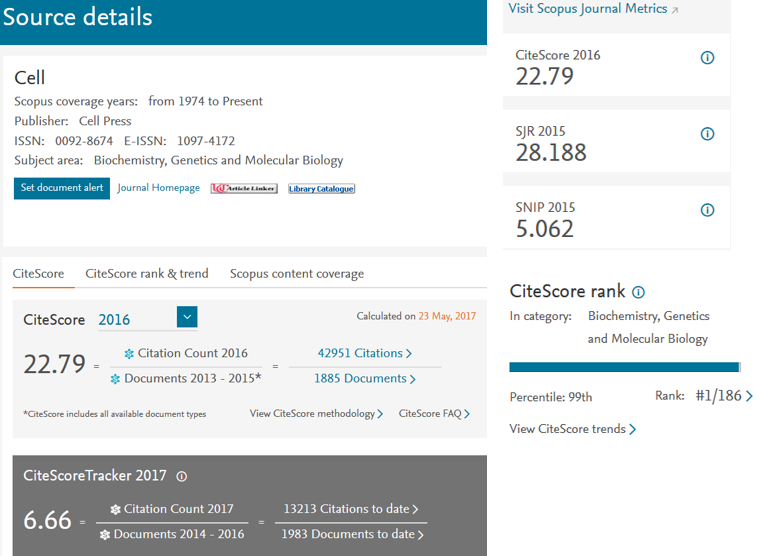


 The Donald C. Harrison Health Sciences Library, with funding from the University of Cincinnati’s Office of the Provost, is pleased to present the LabArchives Electronic Lab Notebook.
The Donald C. Harrison Health Sciences Library, with funding from the University of Cincinnati’s Office of the Provost, is pleased to present the LabArchives Electronic Lab Notebook.